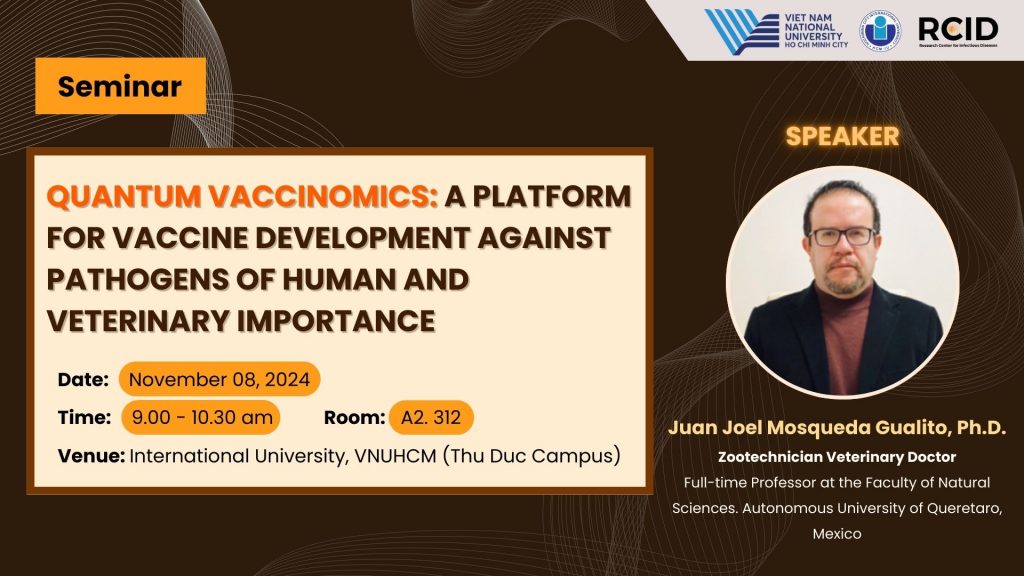
Quantum vaccinomics: a platform for vaccine development against pathogens of human and veterinary importance
Speaker: Juan Mosqueda, PhD
Full Time Professor. Immunology and Vaccines Laboratory, Natural Sciences College, Autonomous University of Queretaro; Carretera a Chichimequillas, Ejido Bolaños, Queretaro Queretaro 76140, Mexico; joel.mosqueda@uaq.mx
Abstract
Vaccines are one of the most effective methods of disease prevention available. Only potable water, also considered a basic human right, has had a greater impact on people’s health than vaccines. In our group, we have focused on the development of vaccines against pathogens of human and veterinary importance for more than 20 years. We have approached this in three ways:
1. Characterizing the genes of pathogens that participate in key biological functions and can be targeted as vaccine candidates.
2. Characterizing the genes of pathogens that are involved in the invasion process or sexual reproduction and can also be targeted as vaccine candidates.
3. Identifying the genes of disease vectors (such as ticks) that can be targeted to reduce the biological fitness of the ticks.
By combining interactomics, proteomics, and genomics tools, we have identified genes that can be included in vaccines against viruses like SARS-CoV-2 and RHDV-2, bacteria like Streptococcus agalactiae, protozoans like Babesia bovis and B. bigemina, and arthropods like the Rhipicephalus microplus tick. With the help of immuno-bioinformatics, we have identified conserved B-cell epitopes that induce neutralizing antibodies and conserved T-cell epitopes that induce cellular immune responses in vaccinated animals. Additionally, we assembled multi-epitope, multi-antigenic molecules that, were expressed as recombinant chimera proteins. The purified recombinant antigens are emulsified with adjuvants and inoculated in naive animals. We have showed that these vaccine antigens induced protection in challenged animals, and were able to be patented.
Through quantum vaccinomics, we are currently laying the foundations to develop vaccines that induce protective immune responses, while being cost-effective and easy to produce.
#RCID #RCIDSeminar
